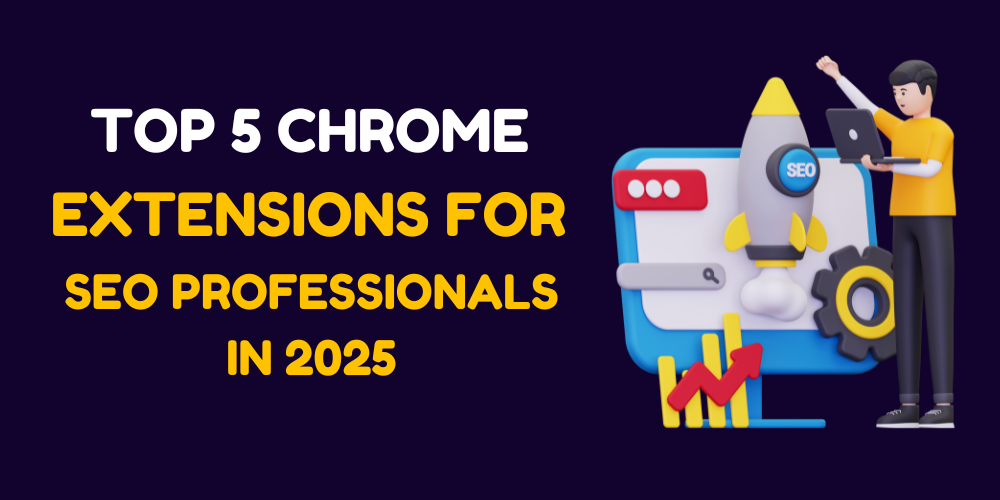On-Page vs. Off-Page SEO: What’s the Difference and Why Both Matter
Search engine optimization (SEO) is a critical component of any successful digital marketing strategy. It involves optimizing your website to improve its visibility and rankings on search engine results pages (SERPs). SEO can be broadly categorized into two types: on-page SEO and off-page SEO.
While both are essential for improving your website’s performance, they focus on different aspects of optimization. In this blog post, we’ll explore the differences between on-page and off-page SEO, why both matter, and how you can effectively implement both strategies to boost your website’s rankings and online visibility.
What is On-Page SEO?
On-page SEO refers to the optimization of elements on your website that impact your search engine rankings. These elements include:
- Content: High-quality, relevant, and engaging content that addresses your audience’s needs.
- Meta Tags: Title tags, meta descriptions, and header tags that help search engines understand your content.
- URL Structure: Clean, descriptive URLs that include relevant keywords.
- Internal Linking: Links between pages on your website that help search engines crawl and index your content.
- Image Optimization: Using descriptive file names and alt text for images to improve accessibility and SEO.
- Site Speed: Ensuring your website loads quickly to provide a positive user experience.
On-page SEO is crucial because it helps search engines understand your website’s content and relevance to specific search queries.
What is Off-Page SEO?
Off-page SEO refers to actions taken outside your website to improve its search engine rankings. These activities focus on building your website’s authority, credibility, and relevance in the eyes of search engines. Key components of off-page SEO include:
- Backlink Building: Earning high-quality backlinks from authoritative, relevant websites.
- Social Media Engagement: Sharing your content and engaging with your audience on social media platforms.
- Online Reviews and Reputation Management: Encouraging positive reviews and managing your online reputation.
- Influencer Outreach: Building relationships with industry influencers who can promote your content.
- Forum Participation and Community Engagement: Participating in online forums and communities to build backlinks and establish authority.
Off-page SEO is important because it helps search engines determine how trustworthy and authoritative your website is.
Key Differences Between On-Page and Off-Page SEO
| Aspect | On-Page SEO | Off-Page SEO |
| Focus | Optimizing elements on your website | Building authority and credibility outside your website |
| Key Activities | Content creation, meta tags, internal linking, image optimization | Backlink building, social media engagement, influencer outreach |
| Control | Full control over on-page elements | Limited control over external factors |
| Impact | Helps search engines understand your content | Signals trust and authority to search engines |
| Examples | Title tags, meta descriptions, URL structure | Guest blogging, social media shares, online reviews |
Why Both On-Page and Off-Page SEO Matter
Both on-page and off-page SEO are essential for improving your website’s rankings and online visibility. Here’s why both matter:
1. On-Page SEO Provides the Foundation
On-page SEO is the foundation of your SEO strategy. It ensures that your website is optimized for search engines and provides a positive user experience. Without proper on-page SEO, your website may not rank well, even if you have strong off-page SEO.
2. Off-Page SEO Builds Authority
Off-page SEO helps build your website’s authority and credibility. High-quality backlinks, social media engagement, and positive online reviews signal to search engines that your website is trustworthy and relevant.
3. Both Contribute to Higher Rankings
On-page and off-page SEO work together to improve your website’s rankings. On-page SEO ensures that your website is optimized for search engines, while off-page SEO builds your website’s authority and credibility.
4. Both Enhance User Experience
On-page SEO improves the user experience by ensuring that your website is fast, easy to navigate, and provides valuable content. Off-page SEO enhances the user experience by driving traffic to your website and building your brand’s reputation.
How to Effectively Implement On-Page and Off-Page SEO
On-Page SEO Strategies
- Create High-Quality Content: Focus on producing content that addresses your audience’s needs and includes relevant keywords.
- Optimize Meta Tags: Use descriptive title tags, meta descriptions, and header tags to help search engines understand your content.
- Improve URL Structure: Use clean, descriptive URLs that include relevant keywords.
- Optimize Images: Use descriptive file names and alt text for images to improve accessibility and SEO.
- Ensure Site Speed: Optimize your website’s load time to provide a positive user experience.
Off-Page SEO Strategies
- Build High-Quality Backlinks: Focus on earning backlinks from authoritative, relevant websites.
- Leverage Social Media: Share your content and engage with your audience on social media platforms.
- Encourage Online Reviews: Ask satisfied customers to leave positive reviews on Google and other platforms.
- Engage in Influencer Outreach: Build relationships with industry influencers who can promote your content.
- Participate in Online Communities: Join forums and communities to provide value and build backlinks.
Common Mistakes to Avoid
On-Page SEO Mistakes
- Keyword Stuffing: Overloading your content with keywords can harm your SEO.
- Ignoring Meta Tags: Failing to optimize title tags and meta descriptions can reduce your click-through rates.
- Poor URL Structure: Using long, complex URLs can make it difficult for search engines to crawl your website.
- Neglecting Site Speed: A slow website can negatively impact your rankings and user experience.
Off-Page SEO Mistakes
- Buying Backlinks: Purchasing backlinks is against search engine guidelines and can lead to penalties.
- Ignoring Relevance: Focus on earning backlinks from websites that are relevant to your niche.
- Over-Optimizing Anchor Text: Use a natural, varied mix of anchor text to avoid appearing spammy.
- Neglecting Social Media: Social media is a valuable tool for amplifying your content and attracting backlinks.
Both on-page and off-page SEO are essential for improving your website’s rankings and online visibility. On-page SEO provides the foundation by optimizing elements on your website, while off-page SEO builds your website’s authority and credibility through external activities.
By effectively implementing both on-page and off-page SEO strategies, you can boost your website’s rankings, increase organic traffic, and enhance your online presence. Remember, SEO is a long-term process that requires patience and consistency. Start implementing these strategies today, and you’ll be well on your way to achieving your SEO goals.




